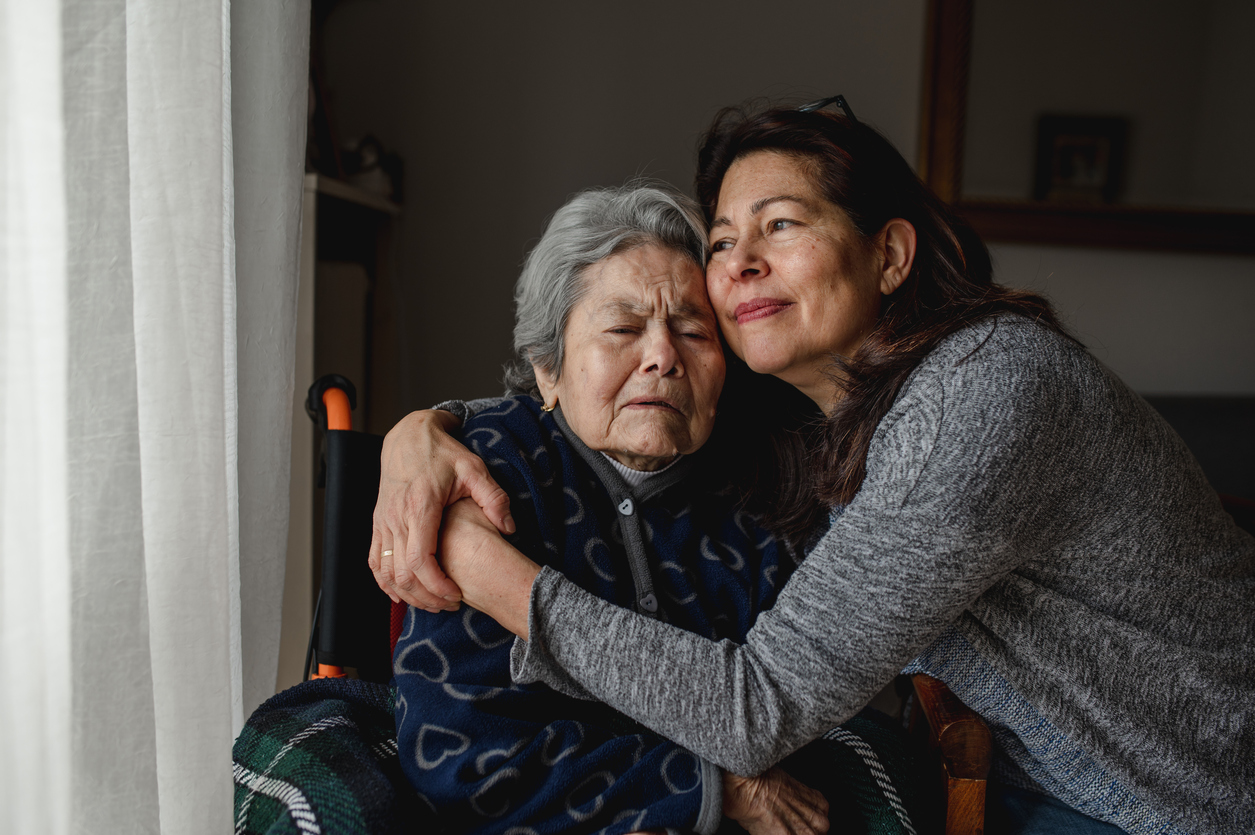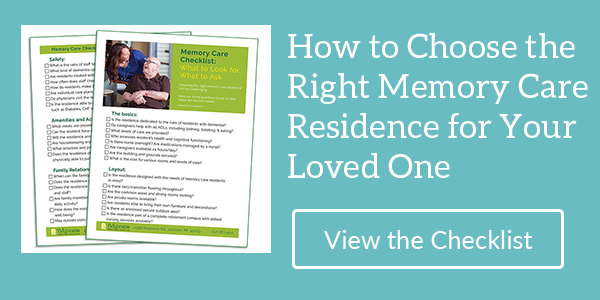Dementia is a devastating diagnosis with many implications, not the least of which is a condition known as sundown syndrome. Also called sundowning or sundowner’s syndrome this condition generally strikes late in the day as the sun goes down but can occur anytime making caring for a loved one with dementia difficult and often overwhelming. However, understanding and preparing for sundown syndrome can help make care easier and keep loved ones safe.
What causes sundown syndrome?
Although no definitive cause has yet been found, the occurrence of sundown syndrome as natural light diminishes may signal a connection to circadian rhythms, the 24-hour cycle that tells us when to sleep and wake. Other possibilities may include changes that occur in the evening like shift changes in memory care or other normal daily events that can become disruptive to someone with dementia. People with dementia may also exhibit sundown syndrome symptoms when they are overtired, over-stimulated, hungry or thirsty, in pain, or depressed.
Symptoms of sundown syndrome
According to the webmd.com article, “How to Manage ‘Sundowning’,” sundown syndrome is characterized by any of several symptoms that include agitation, restlessness, confusion, disorientation, irritability and behavior that is demanding or suspicious. These symptoms may ultimately manifest in many ways as noted in the myclevelandclinic.org article, “Sundown Syndrome,” and include rocking and pacing, wandering, crying, yelling, behaving violently, and closely following “shadowing” caregivers. In its extreme sundown syndrome can lead to paranoid behavior, hallucinations and delusions.
Steps for minimizing sundown syndrome
- Maintain a routine: One of the most essential ways to minimize sundown syndrome is to create a daily routine and stick to it religiously. Since dementia patients are easily upset by change and disruption, a daily routine like that described in the alzheimersproject.org article, “The Importance of Routine and Familiarity to Persons with Dementia,” can help keep them centered and eliminate upsets.
- Control light: Because waning light may be a trigger, take care to increase indoor lighting as night falls. Other helpful possibilities described in the aarp.org article, “Managing Sundowners Syndrome: #6: Adjust Lighting,” include using a lightbox (like those used for Seasonal Affective Disorder), changing to higher-watt light bulbs, and eliminating exposure to blue light such as from tablets, phones and computer screens that may interfere with sleep.
- Do busy work during the day: Staying busy can help dementia patients feel a sense of independence and accomplishment, but anything that requires a lot of physical or mental exertion should take place during the day well before sundown. It’s also best to limit visitors in the evening to avoid confusion. For a list of great activities for people with dementia check out the ww.alz.org article, “50 Activities.”
- Limit caffeine and sugar: The stimulant qualities of caffeine and sugar can wreak havoc on sleep so limit both to the morning and switch to healthy snacks and beverages later in the day. Among the possibilities are fruits and vegetables, nuts and seeds, and caffeine-free tea. Also, be sure to provide water throughout the day to stay ahead of dehydration.
- Create calm evenings: From late afternoon through bedtime keeping a calm atmosphere will enable better sleep and less confusion. Limit television and listen instead to calming music, look at photo albums, read a book out loud or just sit and talk. As bedtime approaches ease into the routine of getting ready so that nothing is rushed and there are no unnecessary problems or surprises that disrupt the routine.
- Consult their physician about possible medications including melatonin supplements that may help them sleep. Also have regular checkups to rule out illnesses or infections that trigger or can make the symptoms worse.
Wandering
One of the most troubling aspects of sundown syndrome is wandering. People with dementia may simply walk away from home and get lost or injured. Among the many ways to deal with wandering noted in the aarp.org article, “7 Ways to Prevent Someone With Dementia From Getting Lost or Hurt,” are installing alarms, smartphone apps that allow the phone to be tracked, and providing a wearable form of identification such as a bracelet or pendant. Of course, when wandering becomes a problem, it may be time to consider memory care where precautions are in place to protect residents and help them navigate the end of the day safely and securely.
At Countryside our Brightside Assisted Living & Memory Care community offers a full spectrum of services in a secure and engaging environment. For more information about Countryside, please call Margaret Nagel at (517) 206-5000 or download our brochure to learn about our care levels, cost, and amenities.


